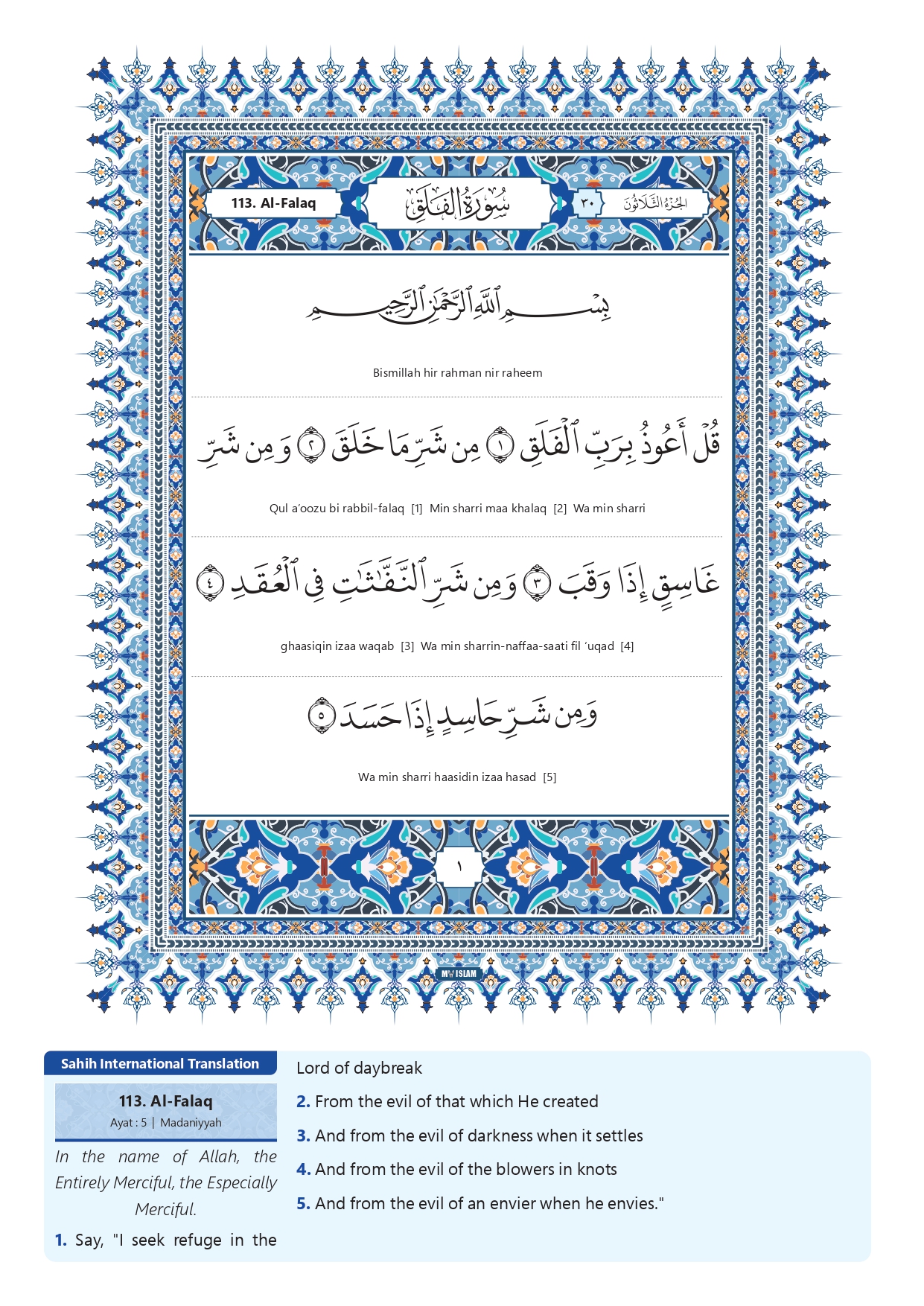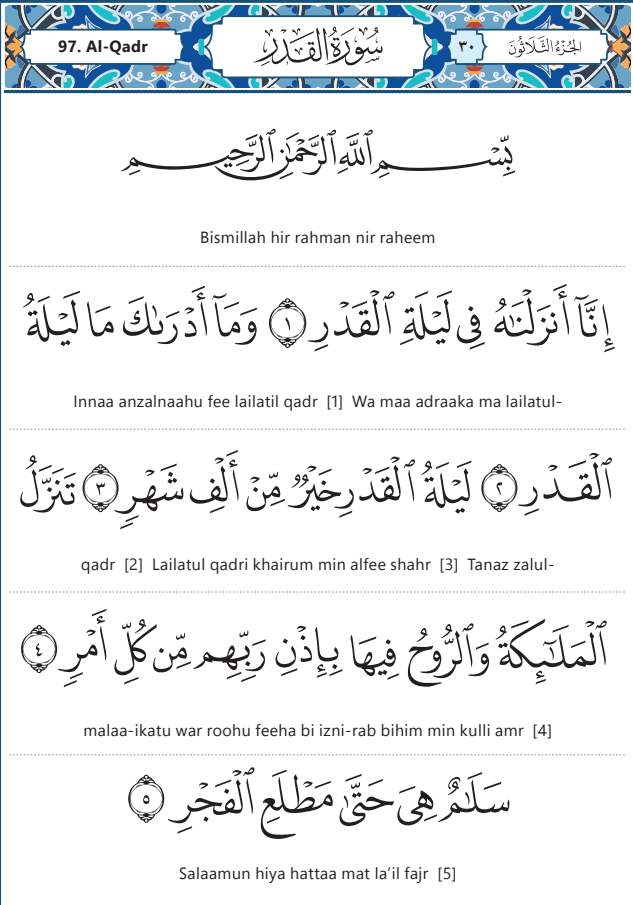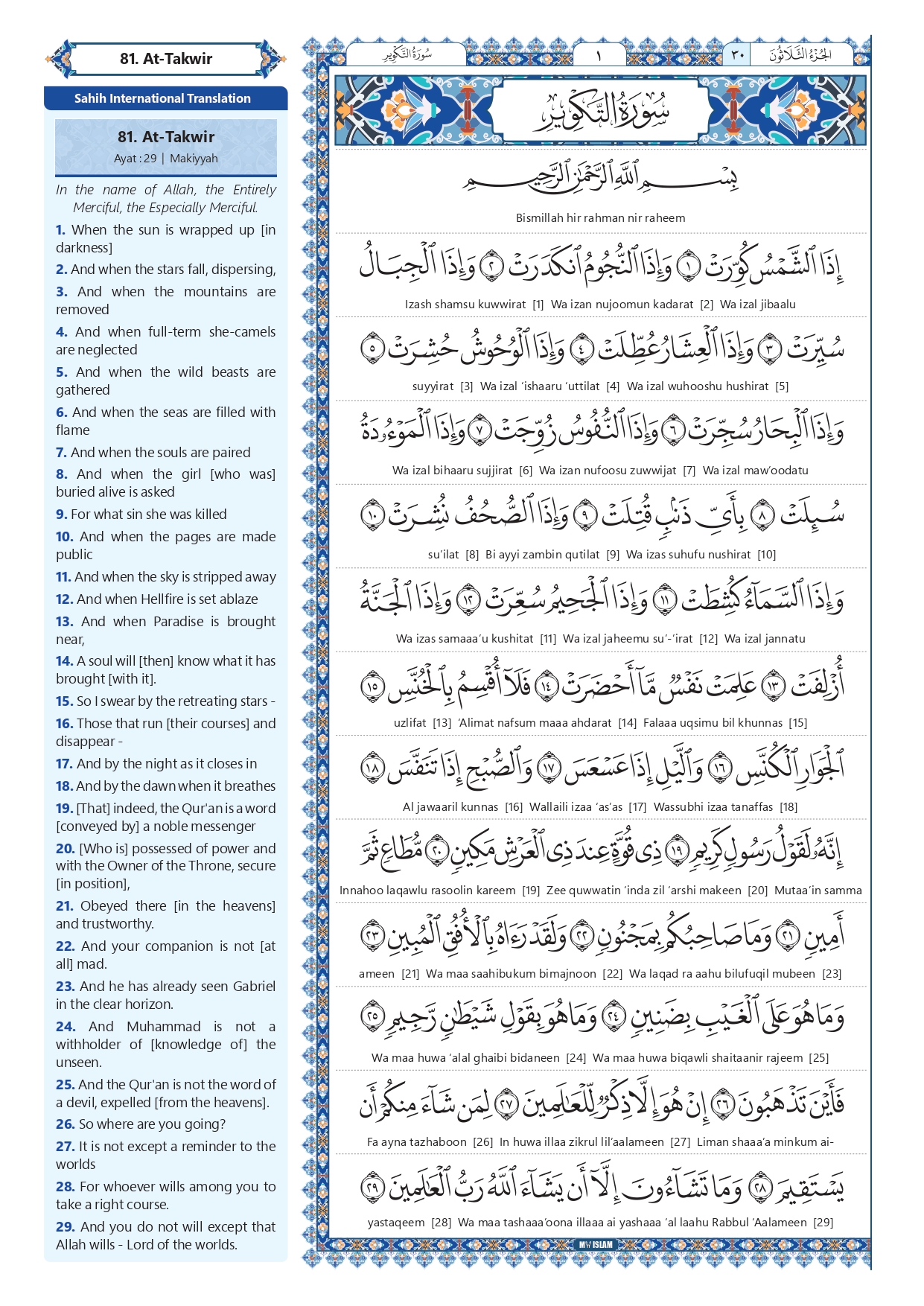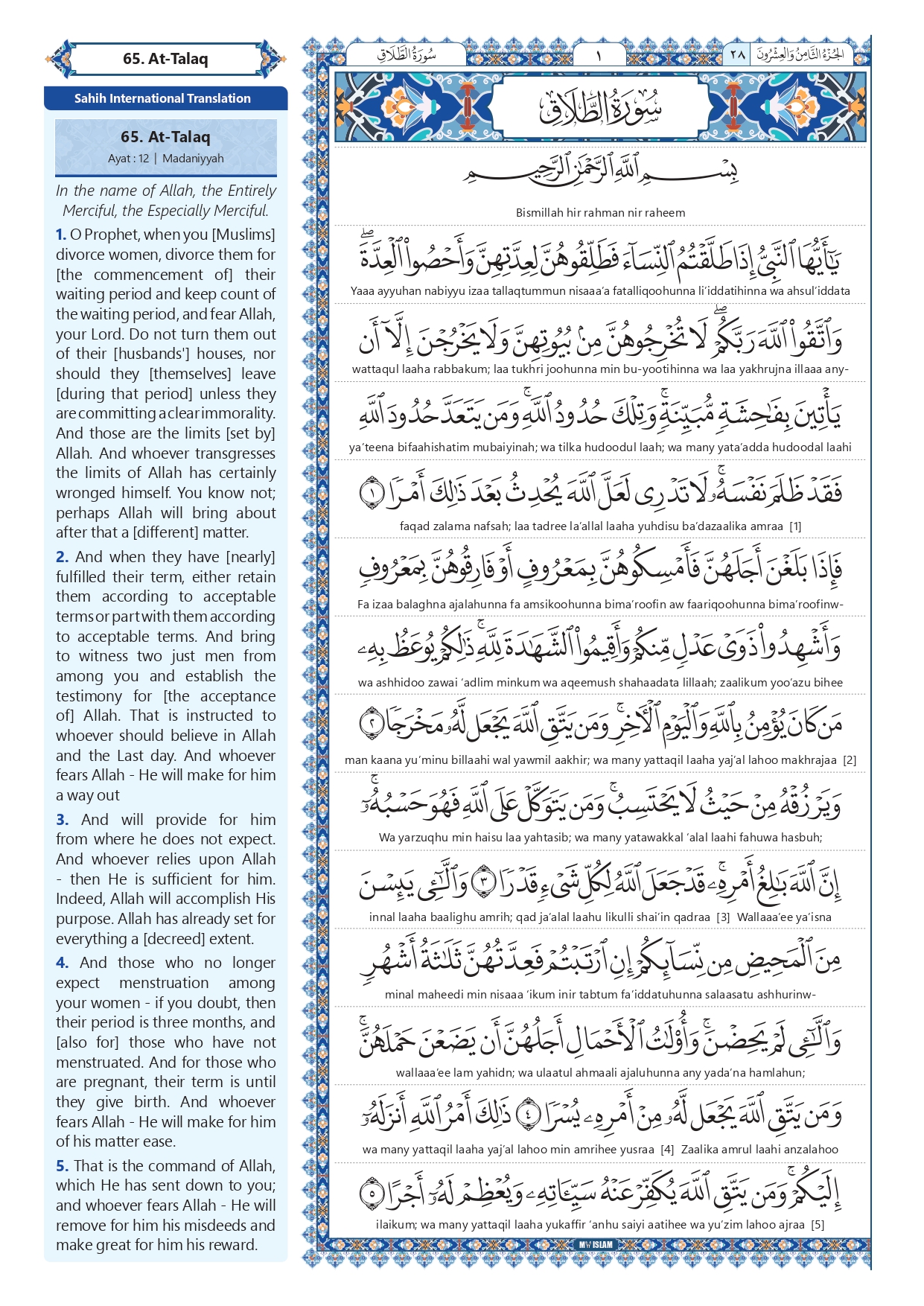surah abasa transliteration is the 80th chapter of the Quran, containing 42 verses. The name Abasa translates to “He frowned,” referring to a moment when Prophet Muhammad (peace be upon him) was engaged in a conversation with the Quraysh leaders and did not initially notice a blind man, Abdullah Ibn Umm Maktum, seeking guidance. This chapter emphasizes the importance of compassion and equal treatment for all, regardless of social status.
This article provides the transliteration of Surah Abasa, along with its benefits, meaning, and step-by-step details for learning and memorizing it. Discover how you can learn Quranic verses for free through this platform and access resources for enhancing your understanding of Surah Abasa.
What is Surah Abasa?
Surah Abasa serves as a reminder of the importance of kindness, empathy, and prioritizing those who seek guidance. This surah underscores that everyone deserves attention and compassion, irrespective of their social standing. It also highlights the value of humility in the Prophet’s mission and the need for care in guiding all people.
Surah Abasa Transliteration
Here is the transliteration of Surah Abasa:
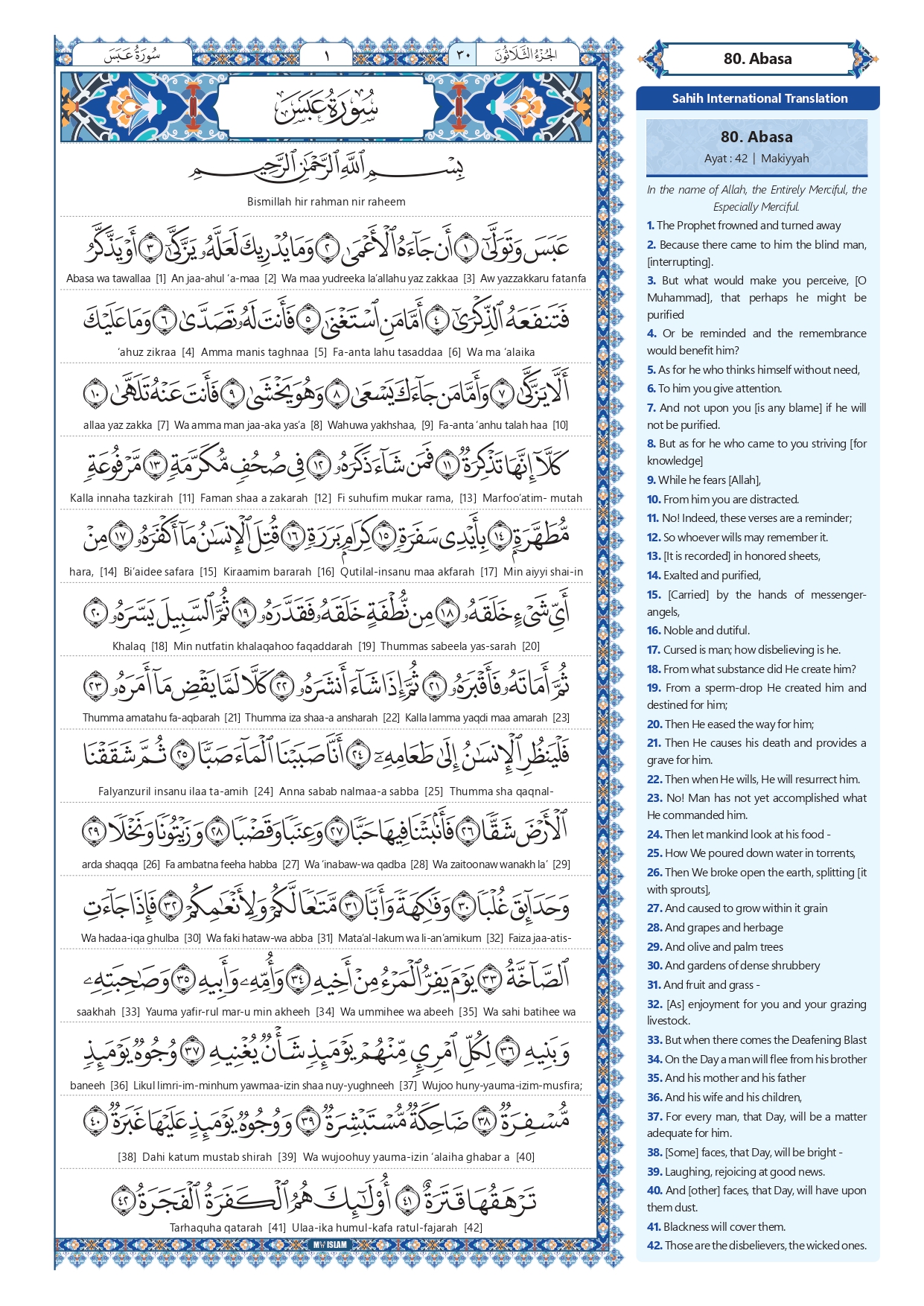
A’uthu billahi min ash-shaytan ir-rajim
Bismillahir Rahmanir Raheem
- Abasa wa tawalla
- An jaa’ahul ‘amaa
- Wa maa yudreeka la’allahu yazzakkaa
- Aw yazzakkaru fatanfa’ahuz zikraa
- Amma manis taghnaa
- Fa anta lahoo tasadda
- Wa maa ‘alaika allaa yazzakkaa
- Wa amma man jaa’aka yas’aa
- Wa huwa yakhshaa
- Fa anta ‘anhu talahhaa
- Kallaa innaha tazkirah
- Faman shaa’a zakarah
- Fee suhufim mukarramah
- Marfoo’ahim mutahharah
- Bi aydee safarah
- Kiraamim bararah
- Qutilal insaanu maa akfarah
- Min ayyi shay’in khalaqah
- Min nutfah khalaqahoo faqaddarah
- Thumma as sabila yassarah
- Thumma amatahoo fa aqbarah
- Thumma idhaa shaa’a ansharah
- Kallaa lamma yaqdi maa amarah
- Falyanzuril insaanu ilaa ta’aamih
- Annaa sababnal maaa’a sabbaa
- Thumma shaqqaqnal arda shaqqaa
- Fa ambatnaa feehaa habbaa
- Wa ‘inabaw wa qadbaa
- Wa zaytoona wa nakhlaa
- Wa hadaaa’iq ghulbaa
- Wa fakihatanw wa abbaa
- Mataa’al lakum wa li an’aamikum
- Fa-ithaa jaaa’atis saakhkhah
- Yawma yafirru lmar’u min akhee
- Wa ummihi wa abee
- Wa saahibatihi wa banee
- Likulli mri’im minhum yawma’idhin sha’nuy yughnee
- Wujoohuny yawma’idhim musfirah
- Dhaahikatun mustabshirah
- Wa wujoohun yawma’idhim ‘alaihaa ghabarah
- Tarhaquhaa qatarah
- Ulaaa’ika humul kafaratul fajarah
Translation of Surah Abasa
- He frowned and turned away
- Because there came to him the blind man, [interrupting].
- But what would make you perceive, [O Muhammad], that perhaps he might be purified
- Or be reminded and the remembrance would benefit him?
- As for he who thinks himself without need,
- To him you give attention.
- And not upon you [is any blame] if he will not be purified.
- But as for he who came to you striving [for knowledge]
- While he fears [Allah],
- From him you are distracted.
- No! Indeed, they [these verses] are a reminder;
- So whoever wills may remember it.
- [It is recorded] in honored sheets,
- Exalted and purified,
- [Carried] by the hands of messenger-angels,
- Noble and dutiful.
- Cursed is man; how disbelieving is he.
- From what substance did He create him?
- From a sperm-drop He created him and destined for him;
- Then He eased the way for him;
- Then He causes his death and provides a grave for him.
- Then when He wills, He will resurrect him.
- No! Man has not yet accomplished what He commanded him.
- Then let mankind look at his food –
- How We poured down water in torrents,
- Then We broke open the earth, splitting [it with sprouts],
- And caused to grow within it grain
- And grapes and herbage
- And olive and palm trees
- And gardens of dense shrubbery
- And fruit and grass –
- [As] enjoyment for you and your grazing livestock.
- But when there comes the Deafening Blast
- On the Day a man will flee from his brother
- And his mother and his father
- And his wife and his children,
- For every man, that Day, will be a matter adequate for him.
- [Some] faces, that Day, will be bright –
- Laughing, rejoicing at good news.
- And [other] faces, that Day, will have upon them dust.
- Blackness will cover them.
- Those are the disbelievers, the wicked ones.
Benefits of Reciting Surah Abasa
- Reminder of Humility and Compassion: Reciting Surah Abasa reminds believers to be compassionate and attentive, especially to those seeking guidance.
- Increases Awareness of Allah’s Mercy: It also serves as a reminder of Allah’s patience with His creation and the importance of equal attention to all individuals.
- Preparation for the Day of Judgment: The surah describes the events of the Last Day, encouraging believers to reflect on their deeds.
How to Memorize Surah Abasa
- Daily Practice: Consistent daily repetition of a few verses helps with memorization.
- Word-by-Word Study: Studying each word separately helps you remember the flow of verses.
- Understand the Meaning: Knowing the meanings of each verse brings deeper appreciation and helps with recall.
How to Recite Surah Abasa
Accurate recitation of Surah Abasa requires attention to pronunciation. Practicing with a recitation video is beneficial for beginners and even advanced readers who wish to perfect their recitation skills.
Surah Abasa Word by Word
Breaking down Surah Abasa word by word allows learners to understand each part, enhancing both pronunciation and comprehension.
Learn Quran for Free
Our platform provides free access to resources that help you learn Surah Abasa and other Quranic chapters. You can benefit from word-by-word translations, audio guides, and video tutorials to aid in your recitation journey.
Watch our video guide on Surah Abasa, showing you how to recite it correctly.
surah takwir transliteration Meaning, Benefits, and How to Learn 81
Frequently Asked Questions
- What is the main message of Surah Abasa?
Surah Abasa emphasizes compassion, humility, and the importance of guiding all people. - How many verses are in Surah Abasa?
Surah Abasa consists of 42 verses. - What are the benefits of reciting Surah Abasa?
Reciting it serves as a reminder of humility, kindness, and the importance of treating everyone equally. - How can I memorize Surah Abasa?
Repeating the verses daily, studying word by word, and reflecting on the meanings helps with memorization. - What is the theme of Surah Abasa?
The theme centers on humility, compassion, and preparing for the Last Day. - How does Surah Abasa relate to the Last Day?
It describes the events and chaos of the Last Day, encouraging believers to prepare. - How can children learn Surah Abasa?
Children can learn it through consistent practice and guidance from videos or a teacher. - What is the historical context of Surah Abasa?
The surah was revealed after the Prophet’s interaction with a blind man, Abdullah Ibn Umm Maktum, teaching a lesson in humility. - Why is Surah Abasa significant?
Its emphasis on humility and equal attention to all people provides a timeless lesson in human conduct. - Where can I find a good translation of Surah Abasa?
Reliable translations are available online, and we’ve provided an accurate one here in this article.

